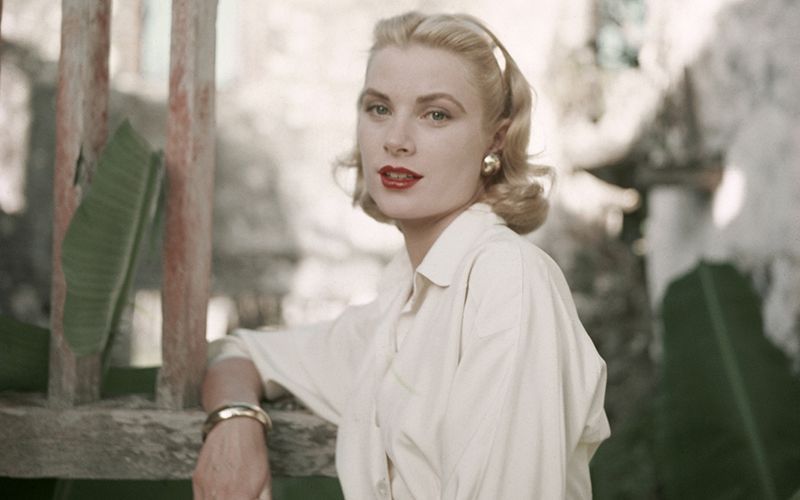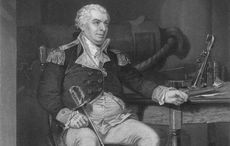American slang has its roots in the Irish American urban experience.
Just before he died, Daniel Cassidy released a pioneering book, "How the Irish invented Slang," that begins to prove how American slang has a root in the Irish American urban experience.
As usual, snoots would rather fall on the side of error than to end the kibosh on ascribing Irish origins to any aspect of Anglo-American society.
Ireland has a native civilization older than England or France, and it has out-proportioned contributions to modernist culture, but it is more usually described as derivative rather than an originator of trends. Despite the stubborn refusal, “jazz” and “poker”, “moolah” and “spunk” all derive from Irish Gaelic, which was used in New York by the Irish like Yiddish, and Spanglish was used later on in the city.
Some dismiss these theories without any real understanding of the Irish language. They existentially must disallow the language had mixed with English - jerks without the knack to dig it. Others dismiss the theories in loyalty to academia's wine and cheese status quo, and don't wish to seem too maverick, or too "street," like Cassidy who had an unabashed Brooklyn accent. There's an element of snobbery involved in the outright refusal many swells have for this working stiff's tome.
Cassidy was among those who have begun to case the hidden history, anyway, and show how gambling slang, underworld lingo, street gang terms, street-wise cant, merchant code, and political jargon in New York City is teeming with Irish Gaelic that melted into American English.
Fellow politically-minded academics present English history and culture as being spic and span of Irish influence. They ignore, impulsively, both Irish American slang smiths in the modern period and Irish Gaelic teachers who taught early Medieval English how to read and write. They prefer to label Irish words in English as unknown or originated in more swank cultures like Latin or French. It's basic prejudice on the side of the common hegemony, rooted in ignorance.
This is a small taste compiled from Daniel Cassidy's boss's book, “How the Irish Invented Slang”, and from Niall Ó Donaill's “Foclóir Gaeilge-Béarla”.
We don't normally exclaim "gee whiz" or "gee whilikers" anymore. We associate such talk with a classic time in New York when Irish Gaelic was the secret language of the slums, an Irish Gaelic word which means 's slom é, or "it's bleak." In the slums, it was common to hear Irish people say Dia Thoilleachas, Gee Hillukus, which became gee whilikers, and means the "will of God." "Gee" is the approximate pronunciation of Dia or the Irish word for God. "Holy cow" means Holy Cathú or Holy Cahoo or Holy Grief. "Darn" is another Gaelic exclamation. In Irish, you say daithairne ort, which means, "darn on you" or "misfortune on you." Gee whiz comes from Dia Uas or Geeuh Woous which means "noble god."
Irish love words were once all over pop songs pumped out from Tin Pan Alley. “Mother Macree”, or mother of my heart, was a huge hit from those early days of pop. A big name in early popular theater was Irishman Dion Boucicault who wrote ‘The Streets of New York”, and included lots of Gaelic in the titles and dialogue of his blockbusters.
Irish pet names like peata, or pet, are still current, as is báb or bawb, which is babe today.
Love songs were published as sheet music for people to sing to at the piano, and it was commonplace to hear Irish pet names like Avourneen, Mavourneen, Acushla, Agrah, and other lovely words like that.
The Irish were pioneers in pop culture, and they littered American popular entertainment from Mother Macree to Huckleberry Finn with snippets of their language.
If you want to cully support, you're calling on your cuallaí, or friends to help you. In modern Irish, collaí has the sense of being carnal or sexual.
If you want to gather people together you make a ballyhoo about the gathering, which in Irish is bailliú, and is pronounced like ballyhoo. You might use a slogan in your ballyhoo to promote the gathering, as the slogan comes from slua ghairm, the yell of a crowd or a battle cry. Ballyhoo entered the language at the circus, where Irish people would use slogans to make ballyhoo about a new show everyone should come out and see. Buddy is another Irish Gaelic word, which comes from the Irish expression, a vuddy, or a bhodaigh, which means something like "pal." The root of the word bhodaigh is strangely, bod, which is the Irish word for penis, and pronounced like bud.
Speaking of body parts, the Irish put their Gaelic mark all over the stiff, or corpse, which comes from the word staf or "big guy." If someone has their snout in the air, they're acting like snoots, which comes from the Irish expression snua aird or when someone appears to be on high and is acting like a swank swell with his nose in the air.
Swank is the Irish word somhaoineach or "valuable" in disguise. Swell is the word sóúil or "luxurious" dolled up to suit the English speaker. If you kick a rich guy in the can, you're kicking him in his ceann which is the "extremity" of a thing, and also "head," which is at the other end from the tail end.
Dogs comes from do chos your feet. The vulgar word for the vagina, pussy, isn't so bad, it just means pus or pouty lips in Irish Gaelic. It's a descriptive term, and not insulting. Mug, however, is insulting, and the common phrase "ugly mug" comes from the word muic, which means pig.
Irish Gaelic was a secret language in Éire, which was once an Ireland riddled with foreign spies, and so it was a language to keep the copper (the catcher, the thinker) from catching on. Cop comes from ceapaim, and means "I catch, think etc." You try to keep the cop from figuring out your racket, or your reacaireacht, your "dealing, selling or gossiping."
Just like the word bailiff came from the Gaelic word baille for bally or home village, the word in New York for the cop on the beat, was the ceap on the béad, the protector on ill-deeds.
Another kind of Big Shot is the racketeer, who can be a cop or a goon - glommers collecting grift - official or underworld. There's little difference when you boil it down between official thieves and illegal ones, and the Irish knew this, observing the most organized acts of criminality enacted by a dolled-up British state, exploiting and criminalizing their own civilization. Big Shot is the Irish word for chief in disguise: seoid, meaning "jewel" or figuratively, "chief."
Racketeer is also related to the Irish word reachtaire which was the title for the money-taking administrator at a colonial big house or at a church office back in Ireland. On the streets of New York, the racketeer has translated the duties and strategies of the colonizer into street crime rackets for himself--the oppressed learn the methods of oppression better than anyone.
A word that should be brought back is "joint" for place or establishment or room. It's a word that instantly conjures an entire world of old New York. It comes from the Irish word for protection or shelter, a place with a roof, such as in the root of the Irish word for penthouse, díonteach, or jeent-ock.
If you want to ditch a joint, and skedaddle in a jiffy, because some dick has copped on to your whereabouts, you want to de áit a díonteach or de-place a joint, and sciord ar dólámh or make an all-out slip in a deifir in a "hurry," because some dearc or "eye" or PI, has ceaptha or thought or caught on to your whereabouts.
Eugene O'Neill was another huge name in early American pop culture. His plays were also high art but riddled with Irish themes and language. His favorite word for money was jack, which is a straight-up glom from the Irish tiach, or money or purse. A guy with a jack-roll was a guy with a wad of cash, spoondoolies or dollars, rolled up. Spoondoolie is one of those old slang words that got resurrected recently in video games, along with Simolions, the currency of Sim City, an urban planning computer fantasy. They're weird English takes on Irish Gaelic expression for a big pile of money or suim oll amháin.
Not everyone is hip to the process where words in one language get misheard and pronounced differently in the new language. In Irish if you want to make sure someone understands your meaning, you say, Diggin tú? It's a normal phrase you hear at the end of sentences all the time. In America, An duigeann tú? Became Diggin you? or You dig? It takes a certain knack to understand how closely related the concepts and sounds of tuig and dig are to each other.
Most scholars go by their goofy hunch, which tells them that Irish Gaelic is some dead language no one ever spoke. In fact, it was the first language of most Irish Americans that came here in the big flood of Irish after the famine, when that famine adversely targeted Irish-speaking areas first and foremost, sending Irish speakers to America before anyone.
In the anti-Gaelic mind, the Irish language is a queer idea, and way too vast a thing to even engage - easier to kill it than to incorporate it into an academic's repertoire of reference. The academic makes this decision usually because he or she is already burdened with three centuries of censorious English state propaganda about the meaning and origin of Anglo-American civilization, which did not come about like their poets' tell us it did.
Another reason Irish Gaelic is neglected as an original source for American slang is that a lot of the street slang that the Irish made up, relates to a world of vice and crime, which some Irish would prefer did not exist.
There is shame associated with the destruction of native Irish Gaelic civilization because the Irish lost their literature and institutions with the victory of the British Empire over their native government. They were impoverished and took up crime in some instances. The Irish share with Black people and Jews, an urban legacy in America that is not squeaky clean, but rather dirty, like life is dirty when you have no money.
Having street smarts is one way to look at the world realistically, and not be duped by those who would double-cross you to take your jag on the personal level or your natural resources on the imperial one. Those who first come to the city as hicks or boobs, come with the law of hospitality firmly entrenched in their hearts, only to awaken from such kindness by the cruelty of urban America. It's dangerous to be a dork or ninny in the dog-eat-dog world. That's why there are so many words for the person-preconditioning, the person before he develops the cop-on that accompanies an ambitious life post-nincompoop to make it in New York.
One way to wake up is to get slugged in the face and have your jag jacked. The Fighting Irish is a common aptronym that describes the occupation of many a brawler that had to whale on an opponent to survive or climb the ladder leading out of the rat race.
As an organized people, they were sparring with a much better-organized establishment. The Irish bickered with the WASP elite until the established order in New York broke down, reformed the sweatshop system of labor in Victorian Anglo-American society, and conceded to the unions and political machines the rights and benefits that created the middle class from the working class that the establishment would have been happy to see slaving away in sweatshops to this day. Instead, the Irish organized and fought for a conception of America that yielded working people an American Dream, a chance to climb out of the slum and into a middle-class job and lifestyle.
Lace curtain Irish is a term that describes the middle-class Irish who climbed out of the slum into the spic and span homes of the American dream. They left behind time in American cities when the Irish were smack dab in the middle of street life, theater, pop entertainment, and politics. The swells from the WASP tradition who owned the banks and institutions of American society tried everything to defame and prevent the Irish from joining their swank ranks, but that ended, or so the story goes, when JFK broke the barrier that separated the WASP from the Irish and went from Harvard to the White House, key bastions of the establishment's institutional power.
One of the ways the Irish got there was by giving up their jazzy speech for the snazzy touch that remade them into crackers and honkies. Although it's commonplace to describe the Irish today as white establishment members, par excellence, they come from Irish Gaelic roots that put them in the middle of New York street life. We're comfortable enough now where we can re-engage that original condition, and reclaim for ourselves a key position in the history of American pop entertainment, language, and culture.
Do you have an idea for a story on Irish music or the Irish language? Why not join IrishCentral's contributor's platform Irish Storytellers? You can learn more about it here and sign up here.
*Taken from the article originally published in 2010, updated in 2025.




Comments